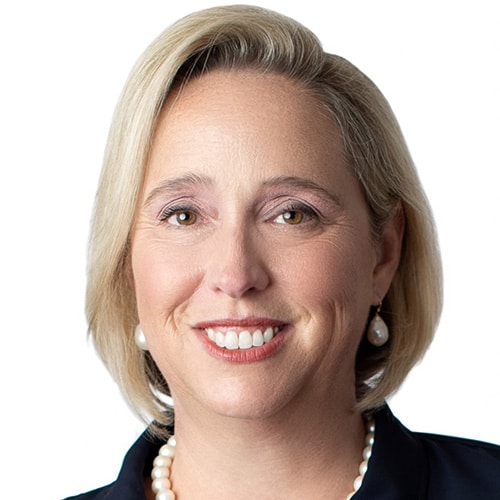The average American has a healthy dose of fear of judges that most attorneys don’t share. But the thought of talking to a loan officer at the bank can have even the most experienced litigators shaking in their boots. That’s because most firms go to the bank when they need money. And banks don’t like to loan money to people who need it, only people who don’t.

Table of contents
When it comes to securing a bank loan or line of credit, we have a saying:
“The best time to ask for a line of credit is when you don’t need it, and the second-best time is yesterday.”
If you are asking today (or next week), the best thing you can do is prepare a good loan package and cross your fingers. The next question I usually get is, “What’s in a good loan package?”
Basic Components of a Good Loan Package
A loan package consists of the basic documents the bank wants to see to determine if you are a good credit risk. Here are the basics:
- Two to three years of corporate tax returns
- Two to three years of personal tax returns for all owners over a certain percentage (usually 15%, but this depends on the bank)
- A copy of all owners’ IDs
- Prior two years’ Income Statement and Balance Sheet
- Year-to-date Income Statement and Balance Sheet
- Personal Financial Statement (PFS) for all owners (usually the same percentage threshold as above)
- Application (provided by your bank)
- Personal Statement (a brief description of why you want the loan)
Items You Probably Have
You should have copies of your tax returns. If not, contact your tax accountant and they can supply them to you. Note: If you are an S-Corp, your firm won’t have its own return but it will have an 1120S, which the bank will want to see.
Items Your Bookkeeper Has
Your bookkeeper should be able to quickly produce copies of your year-to-date and prior years’ financial statements. If your bookkeeper is reluctant to do so or gives you a lot of excuses, that’s a red flag that there’s a problem with your books — created by your bookkeeper. Running these reports takes less than five minutes.
Forms From the Bank
Once contacted, most banks will provide you with a loan application. It is standard and there are no secrets to filling it out — they are very straightforward. The bank will also give you a Personal Financial Statement. This is not as straightforward.
It’s a good idea to complete a PFS every January because it lets you start the year knowing where you stand. It also makes applying for a loan much faster and easier. I learned that from my grandfather.
Remember these few items when filling out your PFS:
- The bank wants to know your necessary payments: What are your obligations? What do you have to pay? Discretionary spending does not have a place here — so don’t put that $20K trip to Europe you take every year on here.
- Pick the point in time when your account and house values were highest. End of quarter/end of year versus today. Pick one time for everything. You can’t pick and choose.
- For your house value, check Redfin, Zillow, Movado, Realtor.com and Trulia to find the one with the highest value.
By filling out your PFS in an advantageous (yet still truthful) way, you can drastically increase the probability of getting that loan.
Personal Statement
The last piece of the puzzle is your Personal Statement. The bank wants to know who you are, if you are a good credit risk and why you want this money. This is your chance to tell them all your plans for the future growth of your firm. It is also a time to be honest. The bank is going to find anything you try to hide, so you might as well be upfront about the problems and explain what you are doing to fix them.
Banks are used to lending money for things like machinery. Things they can come pick up if you stop paying. Law firms don’t really have things, so the bank wants to know if you are going to spend the money responsibly or blow it on a personal vacation. This narrative is your chance to show them you are responsible and will use their money wisely.
There is a myth that banks want to lend you money for “operating capital.” This isn’t true.
They would much rather hear that you want $100K to offset the first six months of a litigator’s salary. In turn, that litigator bills at $500 an hour and will be able to increase the production of your firm by 12% or $360K in that time period. Banks like to hear that you want $100K to implement new software that will streamline operations and eliminate the need for two legal assistants at salaries of $60K each.
As you write your Personal Statement, think about what makes you an attractive, stable, growing, low-risk business for the bank. Be honest about problems and what you are doing to remedy them. Communicate your story well and your banker or loan officer can tell your story to the loan committee.
One Last Piece of Advice
You know that accountant, the aggressive one your friends are using? The friends who never have to pay any taxes? They aren’t doing themselves any favors. Why? Because to the bank, they look like they don’t make any money and, therefore, they aren’t a good loan risk. Very few people have successfully argued dodgy tax strategies as a reason to make their loans more attractive. And because the bank wants two to three years of tax returns, it’s going to be an awfully long time before things start to look better.
More Law Firm Financial Tips from Brooke Lively
For more tips on building a more profitable law firm, read:
- What Should Be on Your Law Firm’s Dashboard
- Are Your Law Firm’s Financial Systems Ready to Scale?
- Law Firm Profits: 5 Ways You May Be Sabotaging Your Firm’s Growth
- The Best Compensation Plans Use the Law of Thirds
- Law Firm Overhead: What It Is — and What It Isn’t
- Building a Law Firm That Pays You First
- Understanding Law Firm Profits — And What to Do With Them
- How Are Law Firm Owners Paid? Total Compensation vs. Salary
- Funding Growth: Are You Starving Your Law Firm?
Image © iStockPhoto.com.

Sign up for Attorney at Work’s daily practice tips newsletter here and subscribe to our podcast, Attorney at Work Today.
















